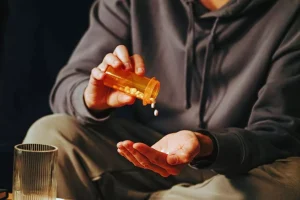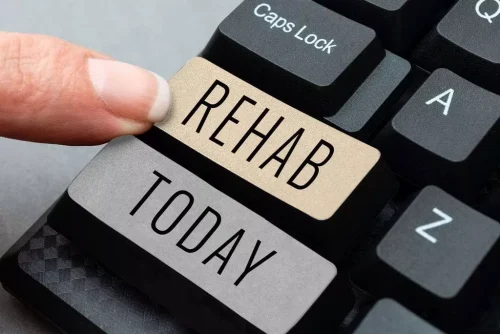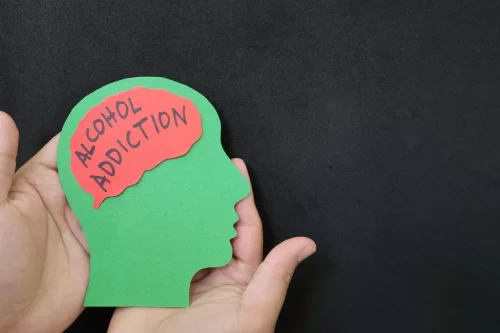
They should be considered severe and potentially life-threatening. If you experience these symptoms, you should seek immediate medical attention. What’s more concerning, however, is that some medications can lead to uncomfortable (even dangerous) side effects when combined with alcohol. In addition, various ingredients found in alcoholic beverages have the potential to trigger an allergic reaction in some people. Those who notice an increase in their asthma symptoms after drinking alcoholic beverages, especially wine, might be reacting to potassium metabisulfite, a common preservative.
Alcohol Intolerance vs. Alcohol Allergy
- This will help reduce your nose’s contact with the drink and make it less likely to trigger a sneeze.
- A food allergy is your immune system’s response to a food protein that the body sees as harmful.
- It’s brief and over quickly, but it’s just so weird that it happens.
- Unfortunately, nothing can prevent reactions to alcohol or ingredients in alcoholic beverages.
- The temperature of the alcohol itself is not a significant factor in inducing sneezing.
- For example, potential symptoms include red and itchy skin, nasal congestion, shortness of breath, abdominal pain, and diarrhea.
If you have a non-allergic intolerance to alcohol, histamine, sulfites, or other components of alcoholic beverages, your doctor might encourage you to limit or avoid certain types of alcohol. In some cases, over-the-counter or prescribed medications might help alleviate symptoms. If they suspect you have a true allergy to alcohol or another ingredient in alcoholic beverages, they will likely conduct allergy testing. The most common type of allergy testing is the skin prick test. During a skin prick test, your doctor will use a lancet to prick or scratch your skin. They will apply a drop of allergen extract to the pricked or scratched area.
- If you’re allergic to any of the ingredients in a mixed drink, you may want to avoid it.
- Few things can be more frustrating than enjoying a drink with friends only to be interrupted by incessant sneezing.
- In addition, beer is often brewed with hops, comprising a compound called lupulin.
- As it turns out, understanding your alcohol-induced stuffy nose starts with understanding how your body processes alcohol — or tries to, anyway.
- But before you take anything, it’s always best to speak with a health care provider about what cold medicine to take while pregnant—just in case.
What You Can Do To Prevent Sneezing When You Drink
While alcohol content does not directly cause sneezing, it can contribute to nasal congestion or irritation, potentially triggering sneezing in some individuals. Yes, individuals with pre-existing allergies or sensitivities to certain substances may be more prone to sneezing while drinking alcohol sneezing after drinking alcohol. The sneezing reflex after drinking alcohol is primarily caused by vasodilation, which increases the sensitivity of the nerve endings in your nasal passages. Alcohol-induced sneezing can occur even without having an alcohol allergy.
- If you’re allergic to wine, you may notice that you sneeze more after drinking it.
- It’s the result of hereditary genes that cause a deficiency in the enzyme ALDH2.
- This will help to reduce the number of histamines in your system and make it less likely that they’ll trigger a sneeze.
- “For some people with sensitive airways, such as asthmatics, consuming sulphites in alcohol may cause wheezing,” she explains.
- Dec. 24, 2012— — Kristin Brown loved to drink – perhaps partied a little too much when she was in her 20s, but when she hit her 30s, alcohol suddenly hit her the wrong way.
- Black pepper acts as a chemical irritant on the nerves in the nasal mucosa, which causes sneezing.
What Is Nonallergic Rhinitis?
It is best for people who have gluten intolerance to avoid beer, unless it is gluten-free. Genuine alcohol allergies, in which people only react to the alcohol, are much less frequent. The phase IV clinical study is created by eHealthMe based on reports from the FDA, and is updated regularly.
Alcohol allergy vs. alcohol intolerance
- If your doctor prescribes an epinephrine auto-injector, you should carry it with you at all times.
- Depending on your symptoms, they might refer you to an allergist for testing and treatment.
- If you’re concerned that you have an allergy, your GP will be able to help.
- Sneezing from chemical and physical irritants is not due to the release of histamine, so most antihistamines would not be expected to help in these cases either.
- As a result, people with asthma are also more likely to experience nasal congestion after drinking alcohol.
- “The amount of sulphites contained in alcohol will vary between products, but sulphur dioxide is one of the fourteen major food allergens that are required by law to be included on labels.”
This increased sensitivity can lead to a sneeze reflex being triggered, causing you to sneeze. One theory suggests that alcohol-induced sneezing may be related to nasal congestion. Alcohol has been known to cause dilation of blood vessels, including those in the nasal passages, leading to congestion and potentially triggering sneezing. In one 2005 Swedish study, those with asthma, bronchitis and hay fever were more apt to sneeze, get a runny nose or have “lower-airway symptoms” after a drink, especially women. Wine – both red and white – were often the worst offenders. Alcohol intolerance is a temporary, but pretty uncomfortable, reaction to alcohol — with nasal congestion and flushed skin being the two most common side effects.
Can I Drink Alcohol With Allergy Medications like Benadryl, Claritin, or Zyrtec?
Sneezing from chemical and physical irritants is not due to the release of histamine, so most antihistamines would not be expected to help in these cases either. This is one of the reasons it can sometimes be hard to distinguish a cold from allergies. Many of the methods of stopping a sneeze involve finding ways to help prevent the reflex of sneezing in the first place. There is no good evidence that, in ordinary cases, sneezing a lot leads to negative health outcomes. Keeping tissues nearby can help a person reach them in time to stop or catch the sneeze. However, as a person may blow their nose and then sneeze immediately afterward, this method is not always effective.


Sulfites, tyramines, and histamines are substances that are naturally found in many forms of alcohol. They’re present in higher amounts in certain types of alcohol, like red wine, than others. If you’re frequently sneezing after drinking, you must see a doctor as there may be an underlying condition that needs to be treated.
Alcohol Withdrawal Symptoms: What Does Detoxing Feel Like? A Timeline
She has tried different types of alcohol — vodka, whiskey or tequila — but she breaks out in hives and a fever. After just a few “tiny sips,” thinking she will be fine, Brown said she ends up “going down the same dreadful path Jack Daniels led me down.” Dec. 24, 2012— — Kristin Brown loved to drink – perhaps partied a little too much when she was in her 20s, but when she hit her 30s, alcohol suddenly hit her the wrong way. With your support, Houston Methodist provides exceptional research, education and care that is truly leading medicine. Finally, acetate is further broken down into water and carbon dioxide and, voila!

While the exact cause is not fully understood, several theories attempt to explain why some people experience this reaction. In this article, we will explore the possible reasons behind why you may sneeze after drinking alcohol. If you feel ill after drinking alcohol but don’t experience symptoms at any other time, it’s possible that you have an alcohol intolerance. Rinsing your nose with salt water can help with symptoms of nonallergic rhinitis. The most common method of rinsing is via nasal irrigation with either neti pots or specially made squeeze bottles.
